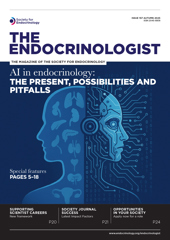OUTCOMES IN APPENDICEAL NETS AND GOBLET CELL ADENOCARCINOMAS
|
Hot topics
Neuroendocrine neoplasms (NENs) of the appendix are rare tumours that include appendiceal neuroendocrine tumours (aNETs) and appendiceal goblet cell adenocarcinomas (aGCAs). While aNETs are typically indolent and often discovered incidentally, aGCAs are more aggressive and frequently present with peritoneal spread.
This retrospective cohort study compared survival outcomes and prognostic factors in 122 patients (92 with aNETs and 30 with aGCAs) treated at the Netherlands Cancer Institute between 2000 and 2019. The results confirm that aNETs and aGCAs are biologically and clinically distinct diseases. Patients with aNETs had excellent outcomes, with 5- and 10-year disease-specific survival (DSS) rates of 100% and 96% respectively. In contrast, aGCAs showed significantly worse outcomes, particularly in the presence of peritoneal metastases, with a 5-year DSS of 64%. WHO grade 3 aGCAs were strong predictors of poor survival and progression. These findings support the 5th WHO classification, which separates aGCAs from NETs.
The study also highlights the potential role of hyperthermic intraperitoneal chemotherapy, a treatment combining heated chemotherapy with surgery, for high-grade or peritoneal metastatic aGCAs. Accurate classification is crucial for guiding treatment and improving outcomes.
Read the full article in Endocrine Oncology https://doi.org/10.1530/EO-25-0028





